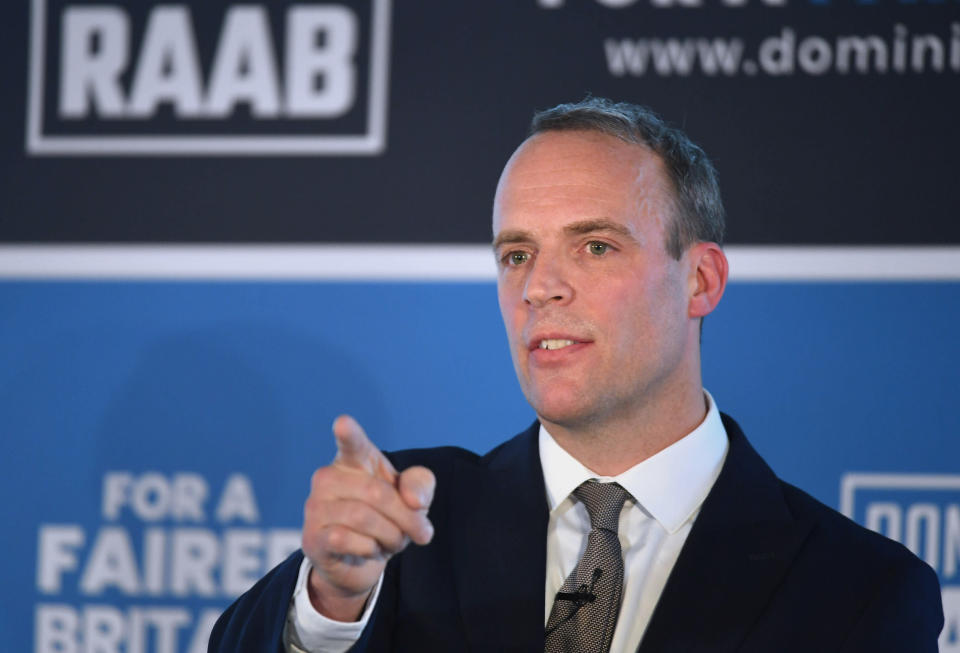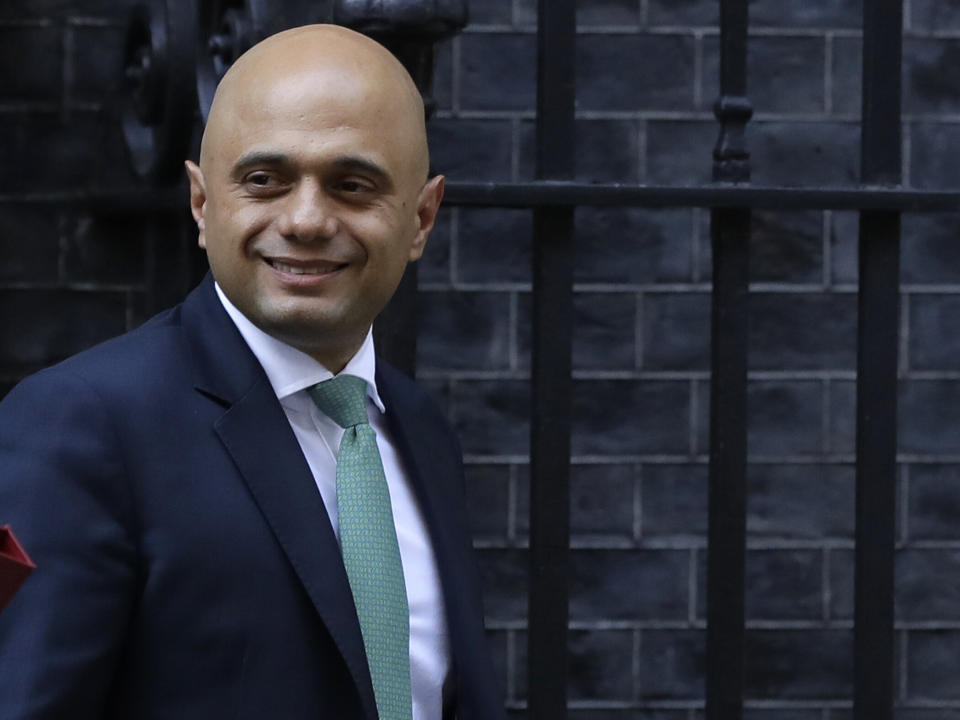The Tory leadership candidates' policies on Brexit, tax and spending

Candidates to be the UK’s next Conservative leader and prime minister have been unveiling dozens of new policy ideas in recent weeks.
Theresa May’s looming departure as Britain’s prime minister leaves government policy up in the air in a vast range of areas.
The dividing lines over a no-deal Brexit have been widely reported, with Boris Johnson, Dominic Raab and Esther McVey talking up their willingness to crash out of the EU without an agreement.
But the candidates also have radically different positions on other issues affecting the public as taxpayers, business people, workers, consumers or investors.
Here are some of the key business-related pledges made so far by leading candidates:
Boris Johnson
The former London mayor says Britain will leave on 31 October “deal or no deal,” and has alarmed leading business groups by threatening to hold back the £39bn divorce bill owed to Brussels.
Johnson also grabbed the headlines over the weekend with a pledge to slash income tax for high earners, in a giveaway described as “no surprise” by critics as it could benefit many Tory members.
He vowed to raise the threshold for UK’s higher 40% tax rate from £50,000 to £80,000, using cash set aside for no-deal preparations and higher national insurance contributions by employees.
Other Johnson pledges include more funding for infrastructure, defence, education, healthcare, policing and environmental protection.
READ MORE: Who will benefit most from Boris Johnson’s tax cuts?
Jeremy Hunt
Hunt, a former businessman, has said he hopes to make Britain the most pro-business country in Europe.
He says Britain can secure a revised deal with Brussels by October, and said he hopes to avoid leaving without a deal. He said he would lead the UK out of the EU without a deal if it were the “only way” to secure Brexit. But he said parliament would not allow it.
Commentators suggest he has left open the possibility of delaying Brexit if it helped avoid a general election.
Businesses could see corporation tax, which is due to fall to 17% next year, drop even further to 12.5%.
He also hopes to increase support for young entrepreneurs and slash interest on tuition fee debt.
Andrea Leadsom
Leadsom is known as a Brexiteer and believes Britain must leave by November, calling for a “managed exit” combining part of May’s deal and other no-deal emergency plans.
She believes an alternative to the Irish backstop can still be found, and that the EU would agree “sensible measures” to reduce disruption if Britain left without a deal.
Leadsom has also pledged tuition fee funding could be expanded to young people taking apprenticeships.
READ MORE: How does the election of the next Tory leader work?
Sajid Javid

Javid has said he would choose a no-deal Brexit over staying in the EU. But he believes spending “hundreds of millions” on a technical solution to the Irish backstop problem could break the current deadlock.
has proposed scrapping the top 45% tax rate for the highest earners, a £100bn pot for infrastructure, a freeze on fuel tax and a slower pace of public debt reduction.
Michael Gove
Gove managed to distract some newspapers from a row over his admission of cocaine use by pledging he would scrap VAT, replacing it with a lower and more varied sales tax.
He has previously defended May’s Brexit deal, and now says he is prepared to delay Brexit by “days or weeks” if it enables Britain to seal a better deal with the EU.
He hopes to renegotiate with Brussels, suggesting the withdrawal agreement could be reopened and pushing for a “Canada-style free trade agreement” in a BBC interview on Sunday.
He is offering free UK citizenship for the millions of EU citizens living in the UK if they stay, promising a points-based immigration system like Australia’s.
READ MORE: UK and South Korea to sign post-Brexit trade deal
Rory Stewart
Stewart has been a loyal supporter of May’s Brexit deal, dismissing both a no-deal Brexit and rival candidates’ hopes of securing a better agreement with Brussels.
has vowed to increase public spending in several areas, including doubling budgets for tackling climate change and Foreign Office diplomacy.
He would sell the taxpayer’s stake in RBS and hopes to increase ordinary voters’ share ownership.
He wants a “simpler” tax system, more infrastructure spending outside London and funding for policing and schools, but has said he will not make unfunded, unaffordable pledges.
Dominic Raab
Raab has one of the most hardline stances on Brexit in the race, doubling down on Monday on a controversial threat to suspend parliament if necessary to push through a no-deal Brexit.
Raab has vowed to slash government spending by up to £26bn to pay for lower income tax and national insurance contributions, ramping up the severe cutbacks already facing many public services.
Raab is seen as on the right of the Conservative party, but took a swipe at Johnson’s plans to cut taxes for the better-off by saying he would “much rather” offer tax cuts to low-paid workers.
Raab says Gove should stay in race, and hits out a Johnson on tax cuts - saying they should be focused on lowest paid first.
— Tom Rayner (@RaynerSkyNews) June 10, 2019
Matt Hancock
Hancock is keen to appeal to firms, hitting out at Boris Johnson by telling the media: “To the people who say ‘f*** business,’ I say ‘f*** “f*** business.””
He claims a time limit is possible on the Irish backstop, and is open to extending Britain’s transition beyond July 2020 to find a technical solution.
He says May’s withdrawal agreement with Brussels should be accepted, and has admitted his hopes of securing a free-trade deal will mean difficult trade-offs.
Hancock’s programme includes a hike in the minimum wage for over-25s to two-thirds of median UK earnings, a 7% rise on the current level.
Esther McVey
McVey has joined Raab in failing to rule out suspending parliament to push through a no-deal Brexit.
She has also suggested Britain’s high-speed rail project is a white elephant that should be scrapped, with funds used on regional infrastructure instead.
The former welfare minister made an eye-catching pledge to axe spending on foreign aid to use the funds on education and policing in the UK.
She has also promised unspecified tax cuts.
READ MORE: Would Britain failing to pay its Brexit bill be a default?

 Yahoo Finance
Yahoo Finance 